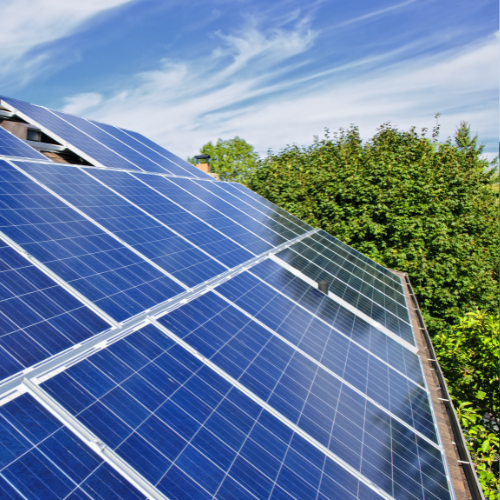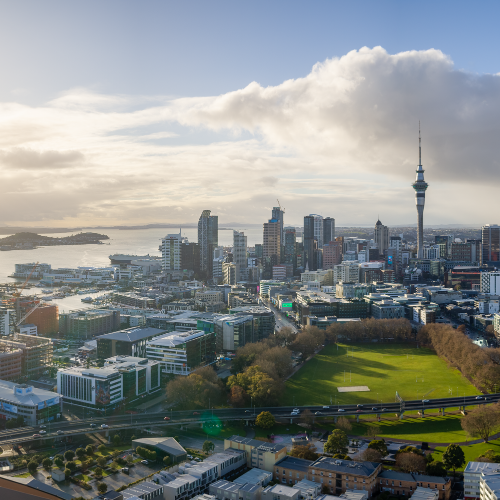Aotearoa New Zealand’s path to decarbonisation will be shaped not only by the technologies we adopt — but by how we engage with them. From heat pump hot water systems to smart appliances, climate solutions for the home are readily available. Yet uptake remains slow. Why? Because many New Zealanders are being left out of the conversation.
The promise of heat pump hot water systems
According to the Ministry of Business, Innovation and Employment, the residential sector is the largest electricity consuming sector in New Zealand, which makes efficiency measures and new renewable generation for this sector important if New Zealand is to achieve its emissions reduction targets.
A June 2025 report released by the Energy Efficiency and Conservation Authority (EECA) explored the role heat pump hot water systems will play in decarbonising our homes. These systems are energy efficient – potentially cutting energy use and running costs by 60-80 per cent compared to a traditional electric element hot water cylinder.
To verify these benefits, EECA has installed 70 heat pump water heaters in homes across New Zealand’s climatic zones, monitoring real-world performance over 12 months and providing better understanding of the real-world energy savings that such systems might offer.
However, despite these technological solutions being available, consumer engagement is lagging – Just 12,000 of New Zealand’s two million hot water systems installed are heat pump systems - less than one per cent.
By comparison, in Australia, where these systems have been in place for over a decade, there are over a million installed.
The uptake challenge: complex choices, low engagement
The issue isn’t availability. It’s complexity. According to the EECA, the market is unregulated. There are currently 18 or more businesses importing/manufacturing and selling these systems, with 40 different models on the market, all with different energy efficiency, cost saving, and performance claims. Clear information and advice on the best technological solutions for any household is complex and confusing for the average homeowner.
People at the centre of climate action
At the Auckland Carbon and Energy Professionals Conference in May 2025, Professor Lorraine Whitmarsh from the UK’s Centre for Climate Change and Social Transformation (CAST) said that much of the current climate policy framing focuses heavily on technological solutions and ignores the role that everyday people will play. In the UK, 60 per cent of progress towards net zero needs to be achieved through consumer behaviour change - yet most policy remains focused on technological fixes, not the social structures and support people need to act.
CAST’s research is focused on people as drivers of change in four areas that significantly impact climate change - yet have been slow to shift. These areas are: heating and cooling; consumption of goods and physical products; food and diet; and travel and mobility.
At the conference, Professor Whitmarsh discussed findings from CAST’s people-centred research. She said collaborative solutions can emerge from ‘communities of practice’ that bring together diverse expertise around shared issues.
Involving individuals effectively in rapid, impactful, and fair transformations can be achieved through meaningful public engagement, either through community-led groups, or through more centrally coordinated engagement opportunities such as citizen assemblies.
Electrify Grey Lynn: a local example
The inner Auckland suburb of Grey Lynn is already doing this in practice, forming a group called Electrify Grey Lynn to support the neighbourhood as it navigates the often-overwhelming task of understanding how to access new low carbon domestic technology like rooftop solar, demand flexibility tools and smart appliances.
A key part of their work involves asking technology providers to provide better and more reliable information on how these technologies work – and more importantly – the cost and payback.
One event focused on heat pump hot water systems, bringing together a group of information-hungry residents along with heat pump hot water technology providers and tradespeople. It was a chance for residents to ask questions, grow their confidence and share knowledge with friends and neighbours in order to reduce some of the complexity and confusion.
Grey Lynn is one of many Electrify communities popping up all over the country, supported by Rewiring Aotearoa’s Electrify Everything movement. Community activator for Electrify Grey Lynn Suzanne Kendrick says the community of Grey Lynn understands the need to decarbonise but doesn’t know where to start.
The area still has piped fossil gas (reticulated natural gas), and residents are being warned of supply constraints and rising prices – creating urgency to electrify. The group are now considering the potential to bulk buy as a collective to make change more affordable.
With hot water accounting for about 30 per cent of household energy use (excluding transport), supporting uptake of efficient systems is a critical step towards meeting New Zealand’s climate targets. But this shift won’t happen through technology alone – it requires informed, empowered communities.
What’s next?
As policymakers, suppliers, and households consider next steps, the message is clear: people must be at the centre of climate action. That means:
- Policy that prioritises fairness, transparency, and co-benefits
- Support for community-led education and bulk-buy initiatives
- Clear, accessible information to guide households through the transition
If you’re a technology provider, policymaker, or community organiser — now is the time to get involved. Supporting community-led initiatives and making climate solutions more accessible can accelerate real change where it matters most.

